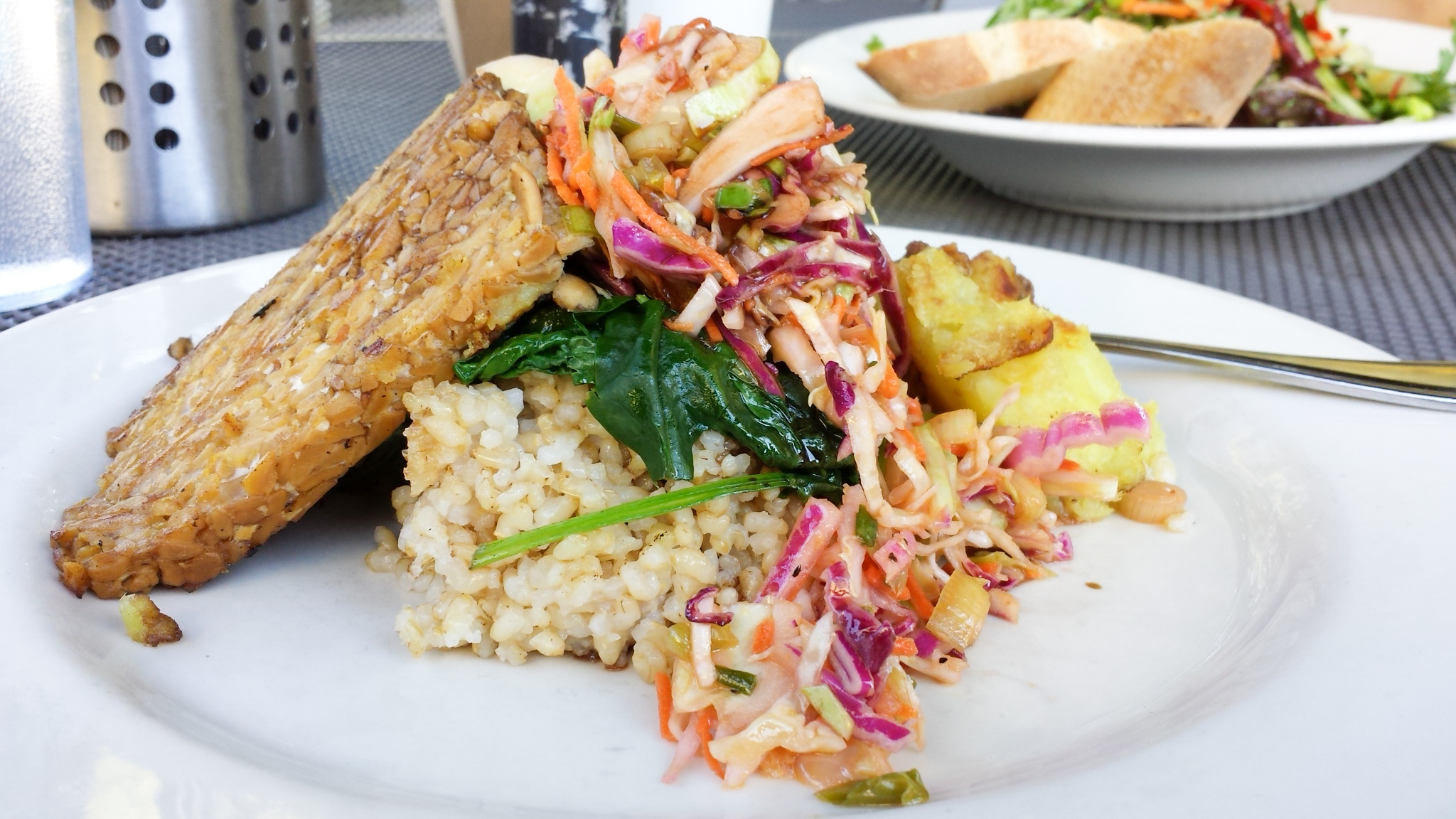
Adopting a plant-based lifestyle has never been easier. We now have many resources such as cookbooks, blogs, nutrition books, and food products readily available. As a registered dietitian and someone that has made the transition to a plant-based diet, I think it’s important for individuals to go at their own pace when it comes to making dietary changes.
From a health perspective, vegan and vegetarian diets are safe and can even be beneficial for all age groups. Like any healthful dietary pattern, it is important to choose the right foods. For example, fried potato chips, Oreo cookies, and soda don’t contain animal products. They’re vegan, but they’re definitely not healthy! It’s important to fill your plate with wholesome food in order to get the most benefit from plant-based eating. There have been many research studies of people that follow plant-based diets, and it appears that vegetarian and vegan diets are associated with lower rates of type 2 diabetes, hypertension, cardiovascular disease, and a variety of cancers, all of which plague our country today.
When switching to a more plant-based diet, these are some of the questions that are often asked regarding nutrition:
- Where do I get protein?
- How do I get calcium?
- Should I take a B12 supplement?
The simplest approach is to make sure you are eating enough food, taking a B12 supplement, and consuming a variety of foods, including leafy green vegetables, beans, nuts, seeds, whole grains, fruits and vegetables. If you follow these simple guidelines, then you can rest assured that you’re consuming an adequate amount of nutrients for your body to thrive.
I recommend educating yourself with some plant-based eating basics before you dive into it. This table provides a brief overview of key nutrients to consider when adopting a plant-based diet.
| Nutrient | Purpose | Foods |
| Protein | Tissue maintenance, growth, cellular function | Lentils, beans, peanuts, soy, nuts, nut butters, seeds, whole grains (e.g. quinoa, oats, wild rice, buckwheat) |
| Iron | Growth and development, brain development; a critical component of the hemoglobin structure that carries oxygen throughout the body | Beans, lentils, tempeh, nuts, whole grains, potatoes, broccoli, tomatoes, and leafy green vegetables
*Pair with vitamin C rich foods (e.g. citrus fruits, strawberries, tomatoes, green leafy vegetables) to help increase iron absorption |
| Zinc | Immunity and wound healing; growth, development, and cellular metabolism | Lentils, beans, cashews, almonds chia seeds, oatmeal, pumpkin seeds, sunflower seeds, nutritional yeast. |
| Calcium | Benefits bones, teeth, muscle movement, nerve signaling, and hormone and enzyme production | Kale, collards, broccoli, mustard greens, bok choy, figs, oranges, calcium-set tofu, fortified plant-based milks, blackstrap molasses, tempeh, almonds |
| Omega 3 | Blood clotting, cell membrane structures in the brain, reducing inflammation, and preventing heart disease | Chia seeds, hemp seeds, flaxseeds, walnuts, soy, expeller pressed canola oil |
| Vitamin B12 | Critical for the brain and nervous system; not getting adequate vitamin B12 can result in irreversible damage | Fortified plant-based milks, fortified nutritional yeast, Take a 500 mg supplement daily or a 1,000 mg twice a week
*Vegan or not, all people over the age of 50 should take a B12 supplement. |
This article was originally published in the 2015 issue of Twin Cities Veg Living.

Kristina DeMuth is a Master of Public Health, Registered and Licensed Dietitian. She currently works full-time as the Social Media Director for NutritionFacts.org, a non-commercial, science-based public service. Visit kristinademuth.com to learn more.
References:
- American Academy of Pediatrics (2014). Vegetarian Diets for Children. healthychildren.org
- Amit, M., Canadian Paediatric Society, & Community Paediatrics Committee. (2010). Vegetarian diets in children and adolescents. Paediatrics Child Health; 15(5), 303-314.
- American Dietetic Association and Dietitians & Dietitians of Canada (2003). Position of the American Dietetic Association and Dietitians of Canada: Vegetarian diets. Journal of the American Dietetic Association; 103, 748- 765. vrg.org/nutrition/2003_ADA_position_paper.pdf
- Tantamango-Bartley, Y., Jaceldo-Siegl, K., Fan, J., & Fraser, G. (2013). Vegetarian Diets and the Incidence of Cancer in a Low-risk Population. Cancer Epidemiology Biomarkers & Prevention; 22, 286- 294.

